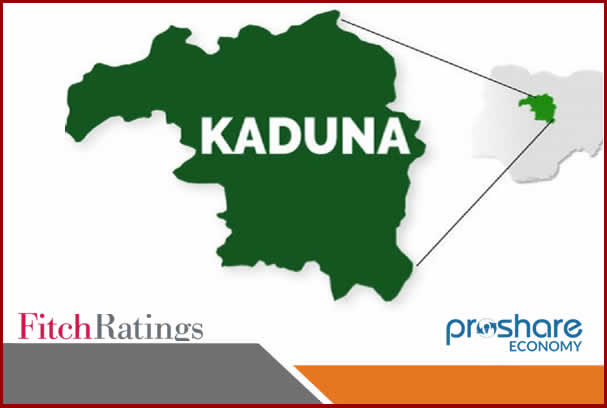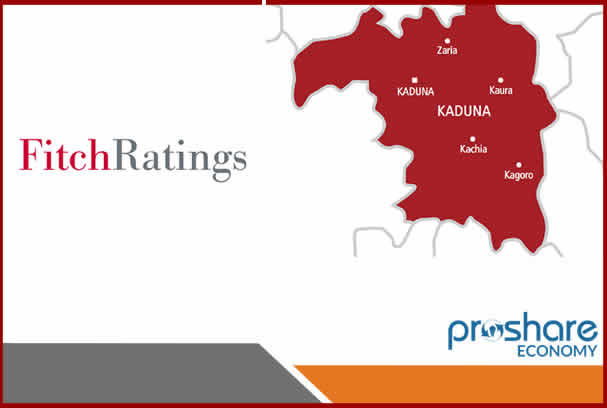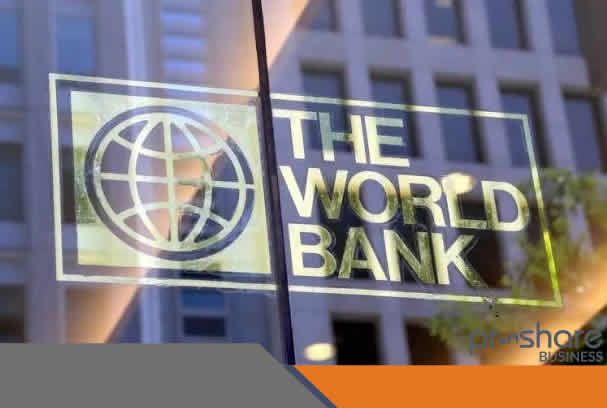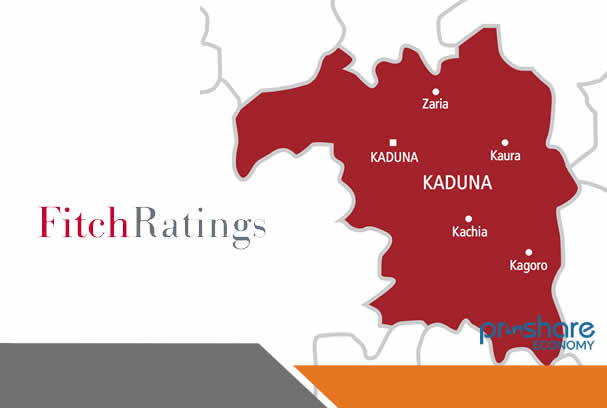Moody's Investors Service has downgraded to Caa1 from B3 the long-term deposit ratings, issuer ratings as well as the senior unsecured debt ratings (where applicable), of all the Moody's rated banks in Nigeria: Access Bank Plc, Zenith Bank Plc, First Bank of Nigeria Limited, United Bank for Africa Plc, Guaranty Trust Bank Limited, Union Bank of Nigeria plc, Fidelity Bank plc, FCMB (First City Monument Bank) Limited and Sterling Bank Plc. At the same time, Moody's has changed the outlook to stable on the long-term deposit ratings, issuer ratings as well as senior unsecured debt ratings (where applicable) of the nine rated Nigerian banks.
This rating actions follow Moody's downgrade on 27 January 2023 of the long-term issuer rating of the Government of Nigeria to Caa1 from B3, and change in the outlook to stable.
This action concludes the review initiated on 13 October 2022 and extended on 25 October 2022.
Ratings Rationale
Downgrade of Long-Term Ratings Reflects Weakening Environment and Interlinkages Between the Sovereign and the Banks
Moody's downgrade of the long-term ratings of nine Nigerian banks reflects a combination of (a) the weakening operating environment, as captured by Moody's lowering of its Macro Profile for Nigeria to "Very Weak" from "Very Weak+"; and (b) the interlinkages between the sovereign's weakened creditworthiness (as indicated by the downgrade of the sovereign rating to Caa1 from B3) and the banks' balance sheets, given the banks' significant holdings of sovereign debt securities.
The revised Macro Profile for Nigeria reflects Moody's expectation that depressed and uncertain oil production, capital outflows amid flight to quality and the government's constrained access to external funding will likely continue to weigh on Nigeria's external position in 2023. The revised Macro Profile also captures the risks that foreign currency shortages in the country pose to the liquidity, capitalisation and asset quality of Nigerian banks.
Rated Nigerian banks have significant direct and indirect exposure to the Nigerian sovereign, with a significant portion of their assets located in the country, and sovereign debt holdings representing 28% of their aggregate total assets as of June 2022. Government exposure links the banks' credit profiles with the sovereign's, whose rating was downgraded on 27 January 2023, to reflect Moody's expectation that the government's fiscal and debt position will continue to deteriorate. The government faces wide-ranging fiscal pressure while the capacity to respond remains constrained by Nigeria's long-standing institutional weaknesses and social challenges.
Stable Outlooks Reflect the Stable Outlook on the Sovereign Rating
The stable outlooks on the long-term deposit, issuer and senior unsecured debt ratings (where applicable) of the Nigerian banks are in line with the stable outlook of Nigeria's government rating.
The stable outlook on the sovereign rating reflects the fact that, while a new administration could reinvigorate the reform impetus in Nigeria after the general elections planned for 25 February 2023 and thereby support fiscal consolidation, implementation will likely remain lengthy amid marked social and institutional constraints. Indeed, the government has long-held the aim of raising non-oil revenue and phasing out the costly oil subsidy, but these objectives necessitate reforms that are institutionally, socially and politically challenging to carry through. Meanwhile, funding conditions are likely to remain tight.
Bank-by-Bank Summary of Actions
- Access Bank Plc (Access)
Moody's downgraded Access' long-term deposit ratings to Caa1 from B3, and downgraded its standalone Baseline Credit Assessment (BCA) to caa1 from b3. Moody's also downgraded the bank's national scale long-term deposit ratings to Ba1.ng from Baa1.ng. At the same time, the rating agency has changed the outlook on the bank's long-term deposit ratings to stable.
The downgrade of the Caa1 long-term deposit ratings reflects the downgrade of the bank's caa1 BCA. Although Moody's believes that there is a high probability that the Nigerian government would support the bank's senior liabilities in case of need, this does not benefit the ratings as the government itself is rated no higher than the bank's BCA.
The caa1 BCA reflects the challenging environment in Nigeria as well as the bank's modest core capitalisation (which is sound but lower than other large Nigerian banks). These challenges are partly moderated by the bank's robust risk management (including lower-than-peers exposure to foreign currency loans, as well as lower-than-peers holdings of sovereign debt securities), sound profitability supported by large domestic footprint and strong franchise in cross border transactions from and into Africa, strong deposit gathering franchise, long foreign currency position (which would help moderate the impact of a potential material currency deterioration), along with the diversified and relatively long-dated nature of its foreign currency funding.
- Zenith Bank Plc (Zenith)
Moody's downgraded Zenith's long-term deposit ratings to Caa1 from B3, and downgraded its standalone BCA to caa1 from b3. Moody's also downgraded the bank's national scale long-term deposit ratings to Baa3.ng from A3.ng. At the same time, the rating agency has changed the outlook on the bank's long-term deposit ratings to stable.
The downgrade of the Caa1 long-term deposit ratings reflects the downgrade of the bank's caa1 BCA. Although Moody's believes that there is a high probability that the Nigerian government would support the bank's senior liabilities in case of need, this does not benefit the ratings as the government itself is rated no higher than the bank's BCA.
The caa1 BCA reflects Nigeria's challenging operating environment, as well as the bank's high restructured loans. These challenges are partly moderated by the bank's robust risk management, strong capitalisation and long US dollar position (which would help moderate the impact of a potential material currency deterioration), solid and conservative management of foreign currency liquidity (supported by strong ties with large non-oil exporting corporates), deposit-funded balance sheet, along with strong profitability underpinned by the bank's disciplined approach and strong ties with large corporates.
- First Bank of Nigeria Limited (FBN)
Moody's downgraded FBN's long-term deposit ratings to Caa1 from B3, and downgraded its standalone BCA to caa1 from b3. Moody's also downgraded the bank's national scale long-term deposit ratings to Ba1.ng from Baa2.ng. At the same time, the rating agency has changed the outlook on the bank's long-term deposit ratings to stable.
The downgrade of the Caa1 long-term deposit ratings reflects the downgrade of the bank's caa1 BCA. Although Moody's believes that there is a high probability that the Nigerian government would support the bank's senior liabilities in case of need, this does not benefit the ratings as the government itself is rated no higher than the bank's BCA.
The caa1 BCA reflects FBN's high exposure to the government of Nigeria, which links its credit profile to that of the sovereign. The BCA also reflects the bank's still-high asset risks - although Moody's does recognise the substantial drop in non-performing loans (NPLs) - and its modest capital buffers. Foreign currency liquidity is an issue that Moody's continues to monitor for all Nigerian banks, although Moody's does recognise that FBN also benefits from foreign currency liquidity sourced from its non-Nigerian affiliates. These challenges are partly moderated by the bank's robust and stable deposit-based funding profile and good liquidity buffers (especially in local currency), and its recovering profitability.
- United Bank for Africa Plc (UBA)
Moody's downgraded UBA's long-term deposit ratings to Caa1 from B3, and downgraded its standalone BCA to caa1 from b3. Moody's also downgraded the bank's national scale long-term deposit ratings to Ba1.ng from Baa1.ng. At the same time, the rating agency has changed the outlook on the bank's long-term deposit ratings to stable.
The downgrade of the Caa1 long-term deposit ratings reflects the downgrade of the bank's caa1 BCA. Although Moody's believes that there is a high probability that the Nigerian government would support the bank's senior liabilities in case of need, this does not benefit the ratings as the government itself is rated no higher than the bank's BCA.
The caa1 BCA reflects the challenging operating environment in Nigeria, combined with the bank's relatively high reliance on corporate deposits. These challenges are partly moderated by the bank's diversified loan book (with lower exposure to the oil and gas sector than local peers), solid capitalisation, and sound profitability supported by a solid pan-African franchise.
- Guaranty Trust Bank Limited (GT Bank)
Moody's downgraded GT Bank's long-term deposit ratings to Caa1 from B3, and downgraded its standalone BCA to caa1 from b3. Moody's also downgraded the bank's national scale long-term deposit ratings to Baa3.ng from A3.ng. At the same time, the rating agency has changed the outlook on the bank's long-term deposit ratings to stable.
The downgrade of the Caa1 long-term deposit ratings reflects the downgrade of the bank's caa1 BCA. Although Moody's believes that there is a high probability that the Nigerian government would support the bank's senior liabilities in case of need, this does not benefit the ratings as the government itself is rated no higher than the bank's BCA.
The caa1 BCA primarily reflects the challenging operating environment in Nigeria, and the bank's high credit concentrations. These challenges are partly moderated by the bank's track record of strong and proactive risk management, high capitalisation and long US dollar position (which provide sizeable buffer against a potential material currency deterioration), strong profitability and deposit funded balance sheet, along with robust foreign currency liquidity management (as highlighted by the absence of material cross border foreign currency obligations, with 81% of the bank's US dollar funding sourced from customer deposits as of June 2022).
- Union Bank of Nigeria plc (UBN)
Moody's downgraded UBN's long-term deposit ratings to Caa1 from B3, and downgraded its standalone BCA to caa1 from b3. Moody's also downgraded the bank's national scale long-term deposit ratings to Ba2.ng from Baa2.ng. At the same time, the rating agency has changed the outlook on the bank's long-term deposit ratings to stable.
The downgrade of the Caa1 long-term deposit ratings reflects the downgrade of the bank's caa1 BCA. Although Moody's believes that there is a high probability that the Nigerian government would support the bank's senior liabilities in case of need, this does not benefit the ratings as the government itself is rated no higher than the bank's BCA.
The caa1 BCA reflects the challenging operating environment in Nigeria, combined with the bank's weak asset quality and modest profitability. These challenges are partly moderated by the bank's sound capitalisation, stable deposit-based funding and heathy local currency liquidity supported by the bank's retail deposit franchise.
- Fidelity Bank plc (Fidelity)
Moody's downgraded Fidelity's long-term deposit ratings to Caa1 from B3, and downgraded its standalone BCA to caa1 from b3. Moody's also downgraded the bank's national scale long-term deposit ratings to Ba2.ng from Baa2.ng. At the same time, the rating agency has changed the outlook on the bank's long-term deposit ratings to stable.
The downgrade of the Caa1 long-term deposit ratings reflects the downgrade of the bank's caa1 BCA. Although Moody's believes that there is a high probability that the Nigerian government would support the bank's senior liabilities in case of need, this does not benefit the ratings as the government itself is rated no higher than the bank's BCA.
The caa1 BCA reflects the bank's tight foreign currency liquidity; and high asset risks, as reflected by the challenging operating conditions, the bank's large volume of Stage 2 loans and high sectoral concentrations and foreign-currency lending. Importantly, the BCA also captures Fidelity's high exposure to the government of Nigeria, which links its credit profile to that of the sovereign. These challenges are partly moderated by the bank's deposit based funding structure and good local currency liquidity, its resilient profitability, and adequate - though modest - capital buffers.
- FCMB (First City Monument Bank) Limited (FCMB)
Moody's downgraded FCMB's long-term deposit ratings to Caa1 from B3, and downgraded its standalone BCA to caa1 from b3. Moody's also downgraded the bank's national scale long-term deposit ratings to Ba2.ng from Baa2.ng. At the same time, the rating agency has changed the outlook on the bank's long-term deposit ratings to stable.
The downgrade of the Caa1 long-term deposit ratings reflects the downgrade of the bank's caa1 BCA. Although Moody's believes that there is a high probability that the Nigerian government would support the bank's senior liabilities in case of need, this does not benefit the ratings as the government itself is rated no higher than the bank's BCA.
The caa1 BCA reflects the challenging operating environment in Nigeria, as well as the bank's elevated credit risks stemming from its high single-name and sector concentrations, and relatively modest profitability. These challenges are partly moderated by the bank's sound level of problem loans, stable deposit-based funding, and solid local-currency liquidity.
- Sterling Bank Plc (Sterling)
Moody's downgraded Sterling's long-term deposit ratings to Caa1 from B3, and downgraded its standalone BCA to caa1 from b3. Moody's also downgraded the bank's national scale long-term deposit ratings to Ba2.ng from Baa2.ng. At the same time, the rating agency has changed the outlook on the bank's long-term deposit ratings to stable.
The downgrade of the Caa1 long-term deposit ratings reflects the downgrade of the bank's caa1 BCA. Although Moody's believes that there is a high probability that the Nigerian government would support the bank's senior liabilities in case of need, this does not benefit the ratings as the government itself is rated no higher than the bank's BCA.
The caa1 BCA reflects the challenging operating environment in Nigeria, along with the bank's high credit concentrations, modest profitability and modest capitalisation (relative to local peers). These challenges are partly moderated by the bank's lower exposure than peers to foreign currency loans, stable deposit-based funding, and high local currency liquidity.
Factors That Could Lead to an Upgrade or Downgrade of the Ratings
The ratings could be upgraded if there was a material improvement in the sovereign's credit profile and in the local operating environment.
The ratings could be downgraded if there was (a) a deterioration in the sovereign's credit profile, and/or (b) a significant weakening in the operating environment in Nigeria, and/or (c) a material deterioration in the banks' solvency and liquidity.
 Lagos, NG • GMT +1
Lagos, NG • GMT +1











 695 views
695 views
















 Sponsored Ad
Sponsored Ad
 Advertise with Us
Advertise with Us









